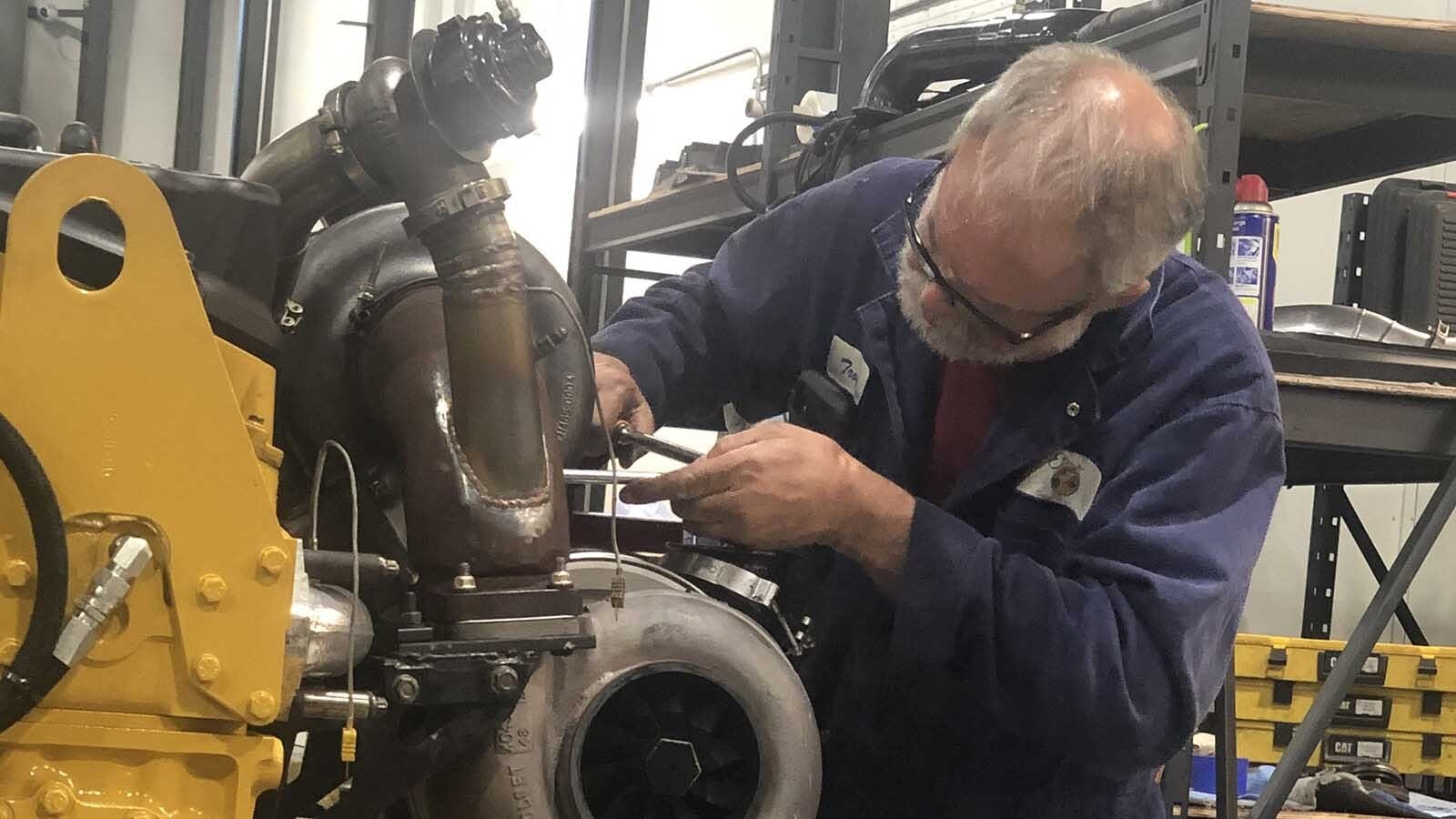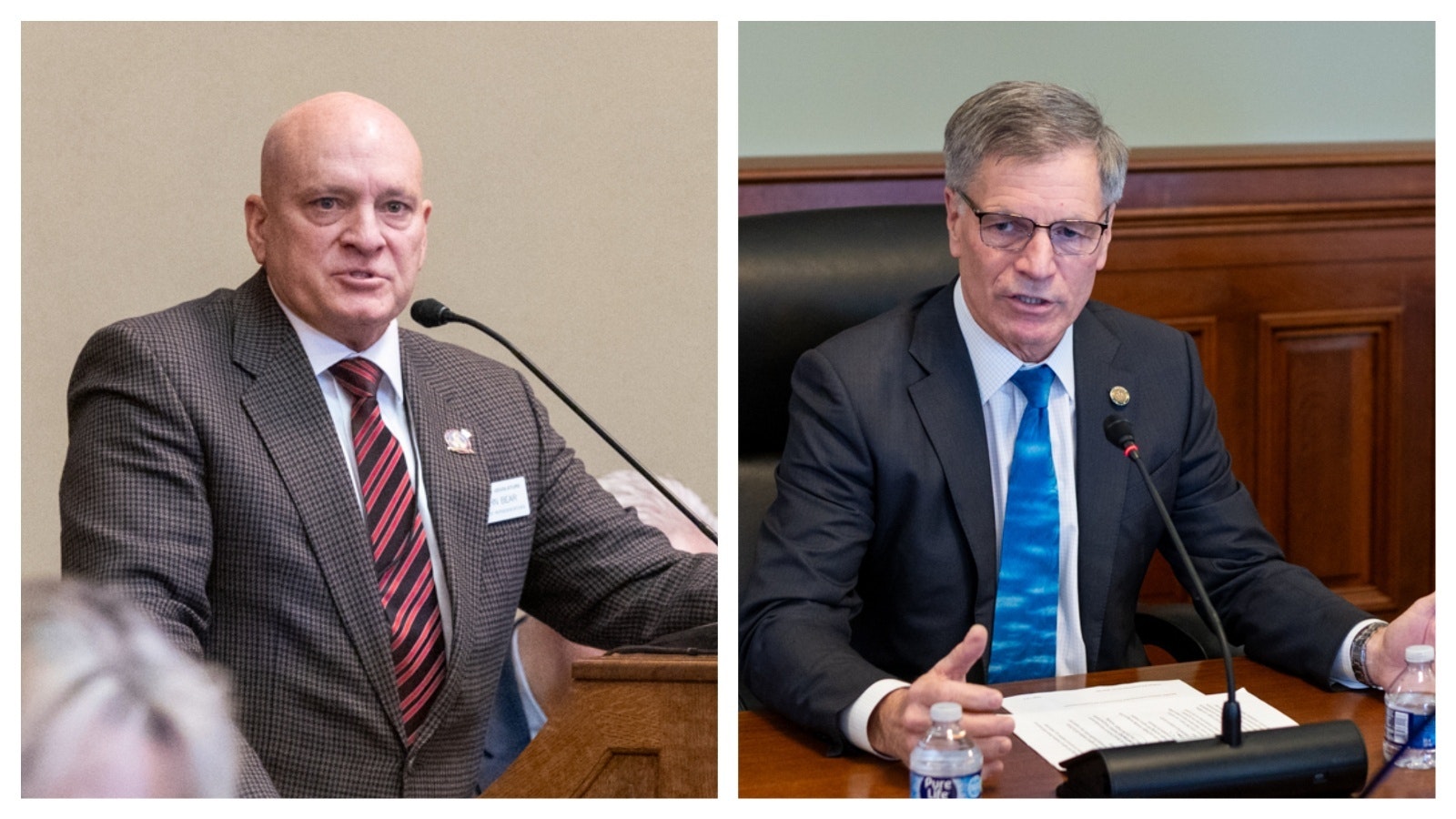One of the three people serving Wyoming in Congress wrote a letter Tuesday to President Donald Trump, urging him to pardon a 65-year-old man who spent months in prison for deleting emissions systems from diesel trucks.
Troy Lake has been released early from the Colorado-based federal prison that held him for seven months. He is now on home confinement in Cheyenne with an ankle monitor.
A 65-year-old father, grandfather, husband and longtime mechanic, Lake was for years the go-to source in helping people and shops correct problems caused by unwieldy, early-2000s-era emissions control systems in diesel trucks.
He was sentenced in December 2024 to one year in prison, for violating the Clean Air Act with his involvement in tunes and emissions “deletes.”
At the FCI Florence correctional complex in Colorado, Lake once again became instrumental as a mechanic — for the prison’s diesel shop.
Though he finished his prison stint early, he’ll live out the rest of his days as a convicted felon, banned from voting, hunting and having guns in the house.

This Is Commonplace Here
In her Tuesday letter to Trump, U.S. Sen. Cynthia Lummis cast Lake’s punishment as unfair and excessive.
She asked Trump to pardon Lake.
“(He’s a) 65-year-old patriot, mechanic, and small businessman from Cheyenne, Wyoming,” wrote Lummis. “His case exemplifies the federal government’s overreach into the daily lives of hardworking Americans in communities across the west.”
Federal agents raided Lake’s shop — which was then in Windsor, Colorado — in 2018, the family told Cowboy State Daily in an interview.
Lake’s son, T.J. Lake, said federal agents crashed into the shop while the family ate lunch, scouring files, haranguing employees and taking alleged evidence.
The family didn’t hear from the federal government for about four years after that.
In 2023 under President Joe Biden’s administration, the U.S. Department of Justice chose to prosecute Lake criminally, noted Lummis.
“This selective timing suggests that Mr. Lake became a political target rather than receiving equal treatment under the law,” the letter says.
Lummis wrote that Lake’s work included modifying fire trucks and school buses — “essential vehicles that must remain operational in Wyoming, Montana, and Colorado’s harsh winter conditions where temperatures can drop well below zero for extended periods.”
And delete-style modifications are “not only commonplace, but often necessary across rural America,” Lummis added.
To Lummis, Lake’s case represents other rural Americans “who could face criminalization for practical modifications that keep their communities and small businesses operational.”
The Environmental Lawyer
Justin Savage, partner and co-leader in environmental and automotive practices at Sidley Austin LLP, told a congressional subcommittee last month that federal government’s recent pursuit of criminal prosecutions against mechanics who delete or tune engines is based on a murky sidestep of the law.
Savage has practiced environmental law for nearly three decades, and has served the U.S. Environmental Protection Agency, the U.S. Department of Justice, and now the private sector.
“I’ve seen several recent instances where environmental law has been weaponized and distorted through administrative reinterpretation and overreach, particularly the rise of criminal prosecutions targeting small businesses and individuals for tampering with the so-called on-board diagnostic (OBD) systems,” wrote Savage in his Sept. 12 statement to the U.S. House Subcommittee on Federal Law Enforcement.
OBD systems are essentially the check-engine lights in cars and trucks. A truck's underlying computer can throw it into limp mode when the emissions system isn’t functioning properly.
Two distinct sections under the Clean Air Act (CAA) address what federal authorities can do when someone tampers with “monitoring” systems, wrote Savage.
One, in the act’s “Title I,” addresses stationary monitoring systems – like a chemical monitoring system on a large plant.
That title specifies criminal prosecution for violations.
The second section addresses mobile devices – like trucks.
That section only allows for civil penalties, an interpretation which Congress’ own research branch, the Congressional Research Service, upheld as recently as 2016, argued Savage.
And that makes sense, he added, since OBD devices don’t monitor emissions for the federal government the way a chemical plant’s monitoring system does. So tampering with it doesn’t equate to “lying to the government.”
And yet, Savage continued, “criminal prosecutions of CAA aftermarket tampering have risen sharply” starting after 2020.
He attached a graph showing one criminal prosecution in 2020, four in 2021, seven in 2022, 10 in 2023 and 16 in 2024.
There have been three of those prosecutions in 2025, according to the graph.
Lake’s attorneys Beau Worthington Sr. and Rick Kornfeld in recent weeks signed attestations – sent Thursday to Cowboy State Daily by Lake’s wife Holly – that they couldn’t find a cease-and-desist order from the federal government in their files. That’s an indication that Biden’s EPA went straight to criminal prosecution tactics, without exploring avenues to remedy the issue through civil or administrative means.
Due Process
The affront to due process, argued Savage, is that people don’t have notice of when their actions rise to the criminal level and how, because of the federal government repurposing ill-fitting laws.
And if federal authorities run their theory to its logical conclusion, he wrote, “(it) produces the absurd result that driving a car with a check engine light is a felony.”
‘Illegal And Dangerous’
Eric Schaeffer, former director of the Environmental Integrity Project, like Savage, also filed a written statement for the House subcommittee’s Sept. 16 hearing.
Schaeffer posed a different view of the issue than Savage.
He condemned deletions as clearly illegal under the Clean Air Act and called them “a clear danger to public health.”
“EPA estimates that between 2009 and 2019, these so-called “defeat” devices dumped more than 570,000 tons of illegal nitrogen oxides into the atmosphere,” says Schaeffer’s written testimony.
He wrote that nitrogen oxides are respiratory irritants and one of the key ingredients in smog formation, and that diesel particulates are especially hazardous, contributing to cancer and heart disease.
The Clean Air Act calls for the EPA to limit tailpipe emissions so the people are not “smothered by smog and soot,” wrote Schaeffer.
“We may disagree as to whether emission limits for diesel trucks have gone too far or not far enough,” he wrote. “But whatever the standards are or should be, it makes no sense to install the emission controls and monitoring needed to meet them if they can be removed as soon as a truck is driven off the dealer’s lot. Yet an entire industry has sprung up to provide those services.”
Clair McFarland can be reached at clair@cowboystatedaily.com.





